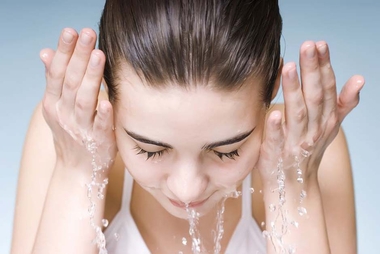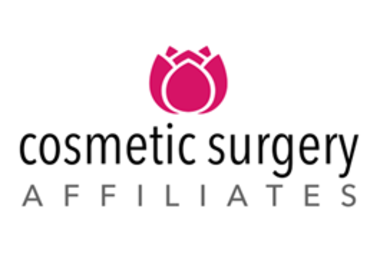Love your skin this spring

By Jennifer Matthesen, MD
CSA Fellow in Cosmetic Surgery
Is it cold enough out there for you? With these frigid temps you may have much else on your mind, but Spring is coming soon. While you are undoubtedly pining away for better weather, it’s a great time to start planning for better skin.
Skin is the largest organ in the human body and has many important roles – as a barrier to water loss, a barrier to infection, and for maintenance of body temperature, to name a few.
Healthy skin is radiant, plump, and free of spots, blemishes, and wounds; it is attractive when it reflects a healthy, well-nourished person on the inside.
Skin care advice out there can be confusing, so let’s break it all down to three goals: protect, nourish, and correct.
Protect: As the saying goes, “an ounce of prevention is worth a pound of cure.” Your skin is under constant threat from UV rays, as well as blue light (smartphone, anyone?) and environmental toxins. Whatever parts of your body are covered, your face is nearly always exposed. UV rays cause wrinkles by damaging collagen and elastin (the structural framework of your skin), as well as causing unwanted, uneven pigment (solar lentigines, poikiloderma, to name a few); and can even cause DNA damage to skin cells (leading to actinic keratoses and skin cancers).
Sunscreen will protect from UV rays and should be worn every day, even in times of seemingly low exposure. Adequate sun exposure for Vitamin D synthesis really boils down to baring more square footage at the right time, but we’ll get to that below. Choose one with SPF 50 or higher; made of physical blockers (e.g. titanium, zinc) which deflect UV rays, rather than chemical ones, which absorb those rays; and most importantly, one that you will wear.
Antioxidants help combat toxins, as they replenish the body’s ability to neutralize free radicals from oxidative stress (which is how toxins do their damage). Vitamin C is one of the most important antioxidants for skin and throughout the body; other important ones are retinol (Vitamin A), Vitamin E, Niacinamide, Resveratrol, Coenzyme Q-10, Polyphenols, Flavonoids, and Glutathione. Look for products with these listed in the ingredients.
Botox can have a protective effect on the skin, as it relaxes facial muscles, which decreases mechanical stress on overlying skin (aka dynamic wrinkles).
And, of course, there are things you should avoid: don’t smoke, avoid second-hand smoke, and limit dietary sugar and “factory fats” (trans- or hydrogenated fats). These all contribute to oxidative damage and accelerate aging, so avoid them as much as possible. Bonus: avoidance of them is good for the rest of your body, as well!
Nourish: For your skin to take care of you, you need to feed it right.
Vitamin A (aka retinol, retinoids) is the essential nutrient for skin cells. It optimizes cell turnover (which is slowed in both aging skin as well as in acne). Products containing retinol can be irritating to the skin or cause sensitivity to light, so they are typically applied nightly; but some preparations are more soluble in the skin and safe to use day and night.
Peptides are considered the “superfoods” of skin as they act as chemical messengers to skin cells, specifically prompting more collagen production. Look for names like Matrixyl, Trylagen, and Copper peptides in the ingredient list of products.
While I am a tremendous fan of medical grade skin care products, never neglect your power to nourish from within. Diets containing protein, gelatin, or bone broth provide raw materials for collagen synthesis. Leafy green vegetables, citrus fruits, and brightly colored red/purple/orange fruits & veggies provide many of the antioxidants listed above.
In case this looks like generic “healthy diet” stuff, yes. Starting to see a pattern?
Adequate Vitamin D is also essential for skin health. Vitamin D is a hormone with a myriad of bodily functions. Suboptimal levels correlate with many skin disorders. Most Americans have suboptimal levels. We can get more from the sun or supplements.
Correct: OK, all of that seems like a lot of work. What if I have not done a perfect job of implementing it all? Fortunately, there is a wide range of options to address existing skin concerns.
Unwanted or uneven pigment responds to lightening agents, such as erm use) or milder agents safer for long-term use (vitamin C, kojic acid, azelaic acid, arbutin).
Acne is a complex condition resulting from overproduction of sebum (“oil”), clogging skin pores, allowing growth of bacteria which causes inflammation and blemishes (aka zits). A good skin care regimen will keep skin clean and exfoliated. Also – limit the dietary carbs, as P. acnes lives on sugar.
Wrinkles can be managed & prevented with Botox; resurfacing with lasers or chemical peels can address deeper, recalcitrant wrinkles. Facelift surgery is the gold standard, and fat transfer can add volume where it is needed, but also improves skin quality as a long-term bonus.
As we emerge from our very cold winter, take the time to take care of your skin. It is like the walls of a castle: beautiful and impressive as a piece of art, but vitally important as a line of defense, protecting the microcosm living within.

Copyright The Gayly. 3/12/2019 @ 10:;06 a.m. CST.





